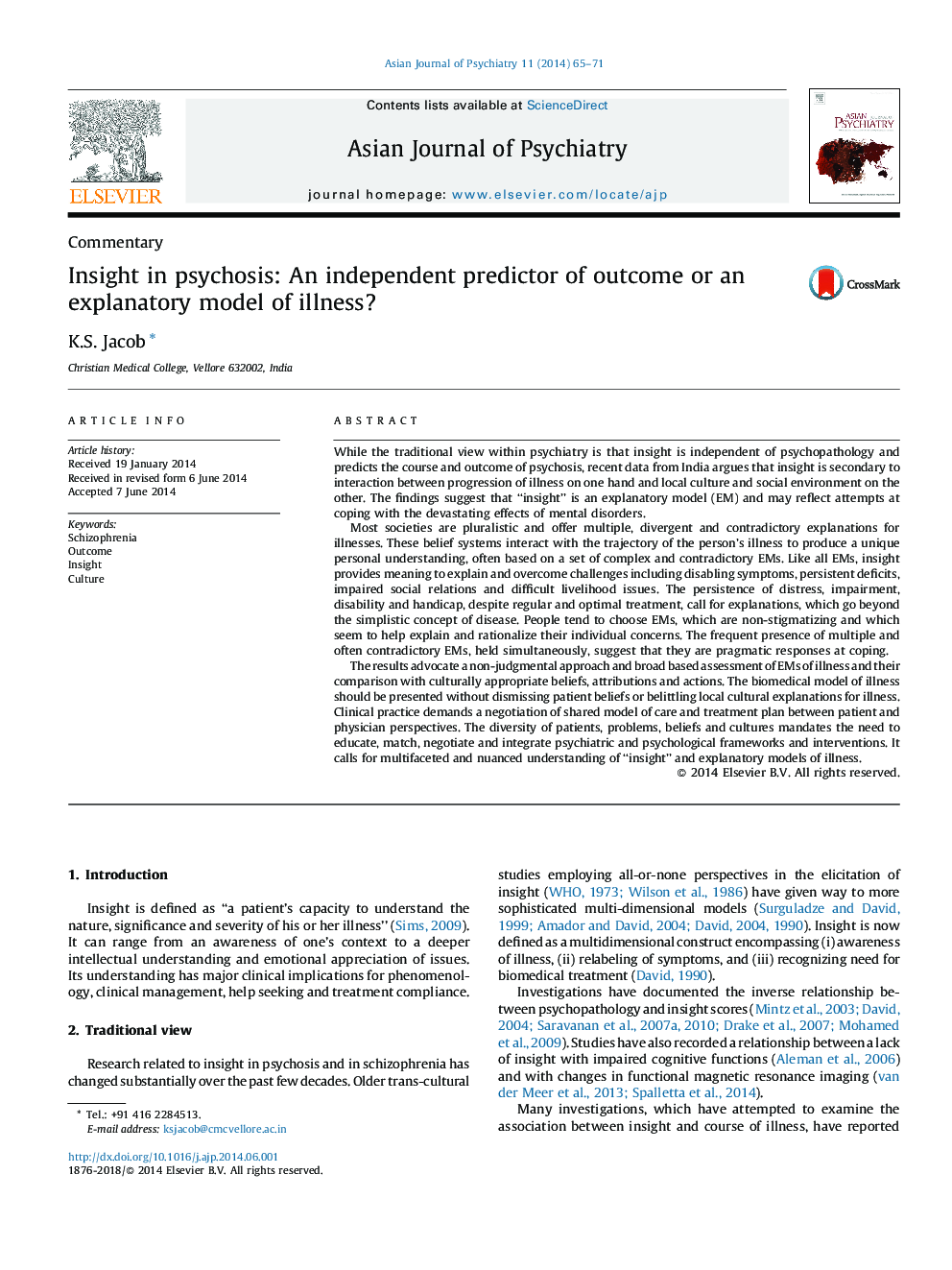| Article ID | Journal | Published Year | Pages | File Type |
|---|---|---|---|---|
| 316820 | Asian Journal of Psychiatry | 2014 | 7 Pages |
While the traditional view within psychiatry is that insight is independent of psychopathology and predicts the course and outcome of psychosis, recent data from India argues that insight is secondary to interaction between progression of illness on one hand and local culture and social environment on the other. The findings suggest that “insight” is an explanatory model (EM) and may reflect attempts at coping with the devastating effects of mental disorders.Most societies are pluralistic and offer multiple, divergent and contradictory explanations for illnesses. These belief systems interact with the trajectory of the person's illness to produce a unique personal understanding, often based on a set of complex and contradictory EMs. Like all EMs, insight provides meaning to explain and overcome challenges including disabling symptoms, persistent deficits, impaired social relations and difficult livelihood issues. The persistence of distress, impairment, disability and handicap, despite regular and optimal treatment, call for explanations, which go beyond the simplistic concept of disease. People tend to choose EMs, which are non-stigmatizing and which seem to help explain and rationalize their individual concerns. The frequent presence of multiple and often contradictory EMs, held simultaneously, suggest that they are pragmatic responses at coping.The results advocate a non-judgmental approach and broad based assessment of EMs of illness and their comparison with culturally appropriate beliefs, attributions and actions. The biomedical model of illness should be presented without dismissing patient beliefs or belittling local cultural explanations for illness. Clinical practice demands a negotiation of shared model of care and treatment plan between patient and physician perspectives. The diversity of patients, problems, beliefs and cultures mandates the need to educate, match, negotiate and integrate psychiatric and psychological frameworks and interventions. It calls for multifaceted and nuanced understanding of “insight” and explanatory models of illness.
